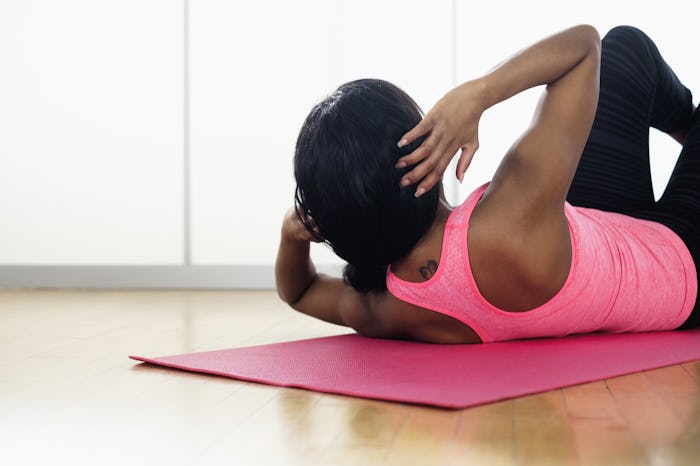Life

Can Exercise Help Anxiety? What To Know Before You Hit The Gym
Everyone knows there are physical benefits to exercising, but can exercise help anxiety? If you like to work up a sweat, then you may be in luck. According to the Anxiety and Depression Association of America (ADAA), exercise is considered vital for maintaining mental fitness as well as physical fitness. The ADAA went on to state that studies show that exercise is an effective way to reduce fatigue, improve alertness, improve concentration, and at enhancing overall cognitive function. As anyone who's suffered from anxiety knows, all of these things are things that can be difficult to manage when anxiety and stress are doing their best to deplete your brain's capabilities.
It's also a well known fact that when you exercise, you produce endorphins. Medicine Net noted that endorphins are chemicals in the brain that act as natural painkillers, that also improve your ability to relax, and sleep, which both help combat anxiety. According to WebMD, endorphins trigger a positive feeling in the body, similar to that of morphine. The feeling that endorphins produce are often accompanied by a positive and energizing outlook on life, both things that can often seem difficult when coping with anxiety. Furthermore, in a 2006 study published in the Journal of Psychiatry & Neuroscience, researchers found that exercise can work in a similar way to antidepressants, alleviating anxiety and depression by promoting the growth of new neurons in the brain.
According to Health, some exercises are actually better for treating anxiety than others. Ben Michaelis, an evolutionary clinical psychologist and author of Your Next Big Thing: 10 Small Steps to Get Moving and Get Happy, told Health that running is one of those exercises. "Running causes lasting changes in our ‘feel good’ neurotransmitters serotonin and norepinephrine, both during and after exercise," Michaelis said. Hiking and yoga were also on the shortlist of exercises that help anxiety that Michaelis provided, because, "nature has a calming effect on the mind," and all of the stretching and breathing "helps to slow down and calm the mind."
But exercises that help reduce anxiety aren't limited to running, hiking, and yoga. According to WebMD, dancing, gardening, jogging, aerobics, swimming, walking, and even moderate house and yard work can all help you combat your anxiety. The Mayo Clinic recommends getting at least 30 minutes of exercise, three to five times a week, in order for it to be an effective defense against your anxiety. The Clinic notes that smaller bursts of exercise, as little as 10 to 15 minutes at a time, can also have a lasting effect. Often times, it can be difficult to find a positive way to manage your anxiety. So the next time you find yourself struggling with your anxiety, take a walk, go for a jog, or even consider mowing the lawn. All of the activities will help you feel better in the long run.